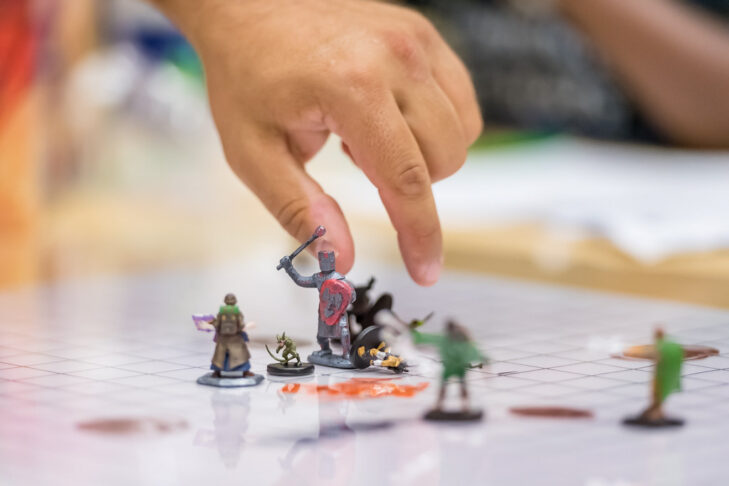If you’re not 24/7 plugged in to the internet via a Matrix-esque brain cord like I am, you may be unaware that the previously maligned roleplaying game Dungeons & Dragons (D&D) is experiencing a beautiful renaissance. Yes, that Dungeons & Dragons.
As a Jewish person in the early aughts, I was blissfully separate from the moral discourse surrounding D&D and didn’t play it. My first exposure was from, horribly, “The Big Bang Theory,” and like so much of the media shoehorned into that show, Dungeons & Dragons was painted as a game sweaty male nerds played at a card table in the back of the comic-book store. But D&D has never been just a boys’ game, and in no small part due to real-play shows like “The Adventure Zone” and “Critical Role,” the role-playing game’s reach has extended to more people. And better yet, in addition to being really fun, it can now be used as a tool for spiritual discovery.
D&D was originally designed by Gary Gygax and Dave Arneson and first published in 1974, though it has been published by Wizards of the Coast since 1997. The game is now in its fifth edition and transports the players into a fantastical world populated by a plethora of creatures, monsters, gods and magical items. The DM, or Dungeon Master, leads the game, but what happens to the players and their characters is determined by dice rolls, roleplaying and creative problem-solving. It sounds, frankly, like a lot of math and sitting, which initially turns a lot of potential players off. The game is also time-consuming and expensive, with the official players’ handbook running about $50 new. But between libraries offering D&D books, players selling old copies and the availability of information online, Dungeons & Dragons is more accessible than ever.
Enter Rabbi Menachem Cohen of Mitziut. Starting in October, Rabbi Cohen will be conducting spiritual direction through the use of Dungeons & Dragons. Players can “discover what makes [them] come alive” while participating in myriad adventures and quests over the Zoom-hosted game, spiritual direction and character creation sessions. It’s a far cry from the stereotypical D&D parties of the past.
Veterans of the D&D table have often described campaigns as therapeutic, a place where they can take on the persona of someone else and work through their own thoughts in the process. If you’re playing with the right people, six hours can feel like five minutes, and I’ve often left games feeling lighter, even if my character has been fighting skeletons for an hour.
Using D&D as a religious tool is not for everyone, however. In Faerun (the world in which D&D sessions take place), there are canonically several gods, a reason that some Jews prefer not to play. Wizards of the Coast is also not without its issues, though these are not exclusive to insensitivity toward Jewish people. Regardless, the game of Dungeons & Dragons is an enriching, bonding experience. If you’re interested in Rabbi Cohen’s sessions, you can find more information here.



